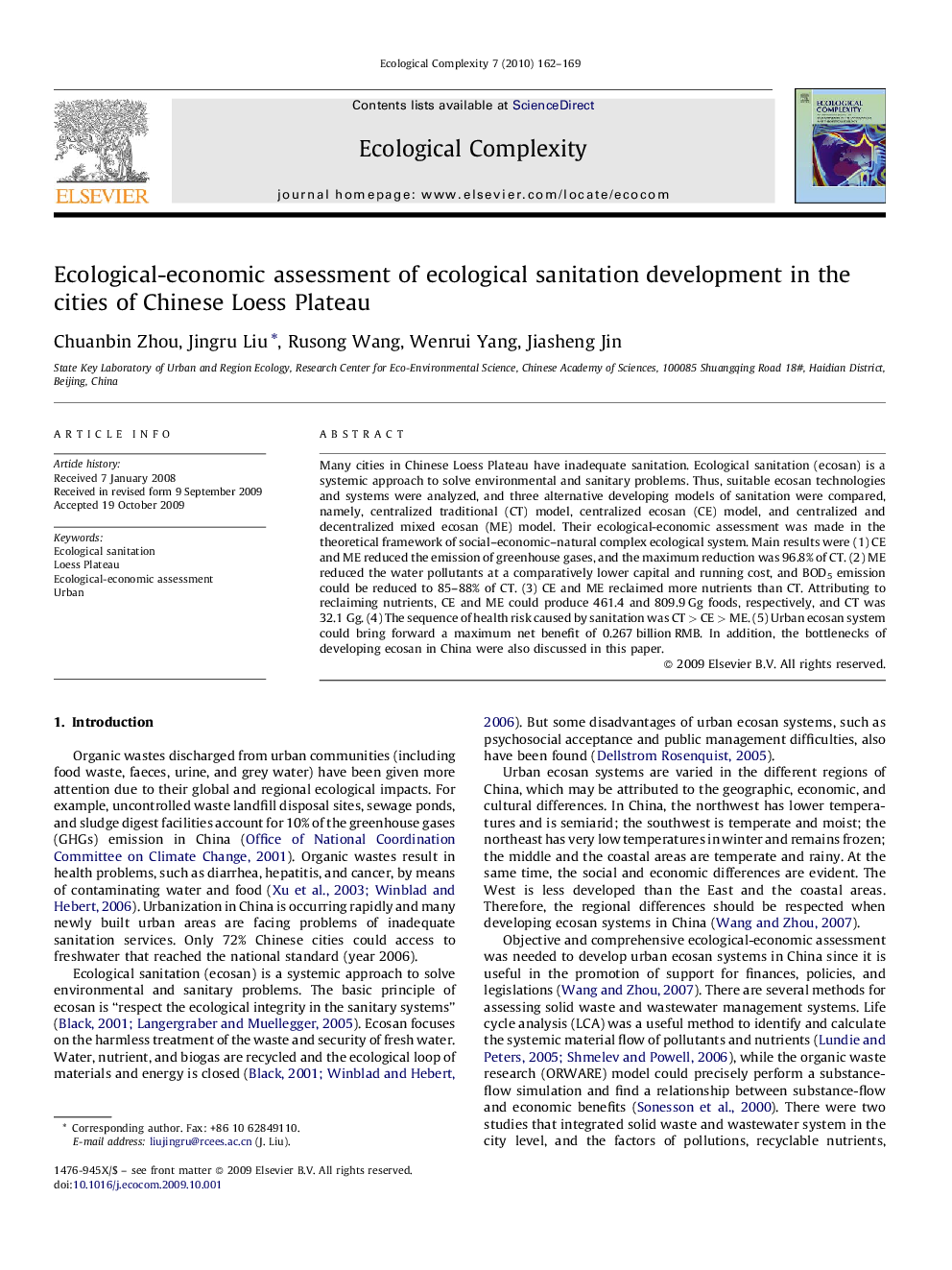| Article ID | Journal | Published Year | Pages | File Type |
|---|---|---|---|---|
| 4372593 | Ecological Complexity | 2010 | 8 Pages |
Many cities in Chinese Loess Plateau have inadequate sanitation. Ecological sanitation (ecosan) is a systemic approach to solve environmental and sanitary problems. Thus, suitable ecosan technologies and systems were analyzed, and three alternative developing models of sanitation were compared, namely, centralized traditional (CT) model, centralized ecosan (CE) model, and centralized and decentralized mixed ecosan (ME) model. Their ecological-economic assessment was made in the theoretical framework of social–economic–natural complex ecological system. Main results were (1) CE and ME reduced the emission of greenhouse gases, and the maximum reduction was 96.8% of CT. (2) ME reduced the water pollutants at a comparatively lower capital and running cost, and BOD5 emission could be reduced to 85–88% of CT. (3) CE and ME reclaimed more nutrients than CT. Attributing to reclaiming nutrients, CE and ME could produce 461.4 and 809.9 Gg foods, respectively, and CT was 32.1 Gg. (4) The sequence of health risk caused by sanitation was CT > CE > ME. (5) Urban ecosan system could bring forward a maximum net benefit of 0.267 billion RMB. In addition, the bottlenecks of developing ecosan in China were also discussed in this paper.
